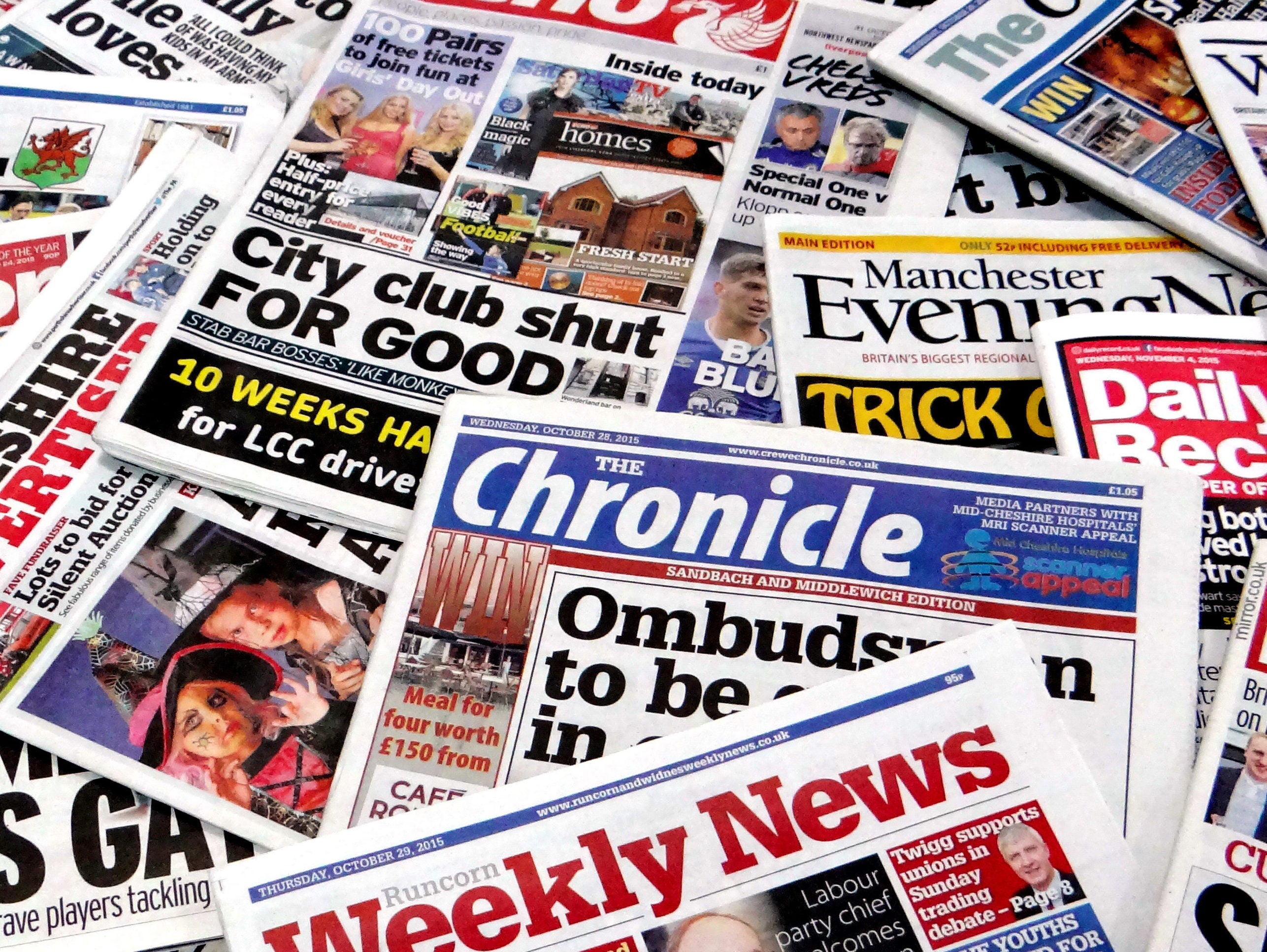
Regional UK newspaper websites saw a decline in online advertising revenue last year despite huge growth in readership.
According to Press Gazette’s analysis, daily website traffic to the 94 UK local press websites audited by ABC grew 40 per cent year on year to 11.6m unique browsers per day at the end of 2016.
Yet data released today by AA/WARC for 2016 shows that digital advertising going to regional newspapers fell last year by 3. 4 per cent to £193m.
Overall, UK digital advertising grew by 17.3 per cent to £10.3bn last year.
But nearly all the new money appears to have gone to US giants Google and Facebook who together are believed to have made more than £5bn in UK advertising revenue last year.
UK regional newspaper websites are nearly all free and many titles have adopted a digital-first strategy, meaning they focus on websites over print. Publishers have sought to offset steep print sales and advertising decline by seeking digital growth.
At the end of 2016 some 64 UK local newspaper titles had their Facebook “likes” audited by ABC. Together they totalled 5m (up by an average of 55.5 per cent year on year).
The platform is so important to publishers that for some years readers of websites operated by Trinity Mirror could only comment on stories if they were signed in to Facebook.
In January Facebook launched its Journalism Project which promises training and tools to help journalists make better use of the platform.
It said: “Local news is the starting place for great journalism — it brings communities together around issues that are closest to home. We’re interested in exploring what we can build together with our partners to support local news and promote independent media.
“This initiative is in its earliest stages; we want to talk about it now so that we can get as much input from newsrooms and journalists as possible, working together to shape what local news on Facebook could look like.”
Yesterday Press Gazette reported that regional press giant Newsquest is offering cash prizes to editorial teams which secure the fastest growth on Facebook.
While social media sites like Facebook appear to be helping local newspapers achieve huge audience growth, publishers are receiving a declining share of advertising revenue.
Google has sought to support local journalism in the UK through its digital News Initiative which awarded £520,000 to the Bureau of Investigative Journalism to develop data tools for the regional press.
Press Gazette analysis suggests that Google and Facebook together take around £1bn a year in advertising which previously went to national and regional newspapers.
The latest figures come as Press Gazette this month launched its Duopoly campaign which aims to stop Google and Facebook destroying journalism.
The UK’s most popular local newspaper website, the Manchester Evening News, attracted an average of 742,000 unique browsers per day in March – up 12.3 per cent year on year.
Picture: Trinity Mirror
Email pged@pressgazette.co.uk to point out mistakes, provide story tips or send in a letter for publication on our "Letters Page" blog







